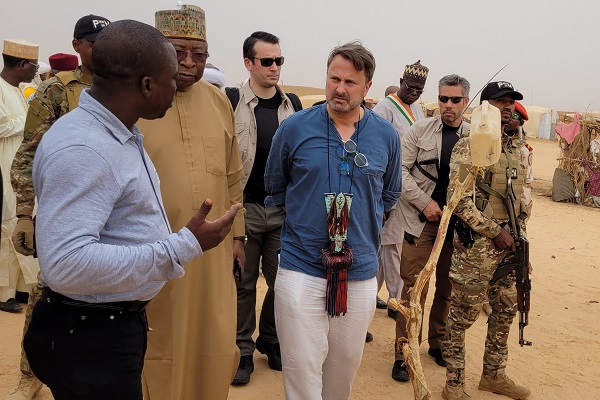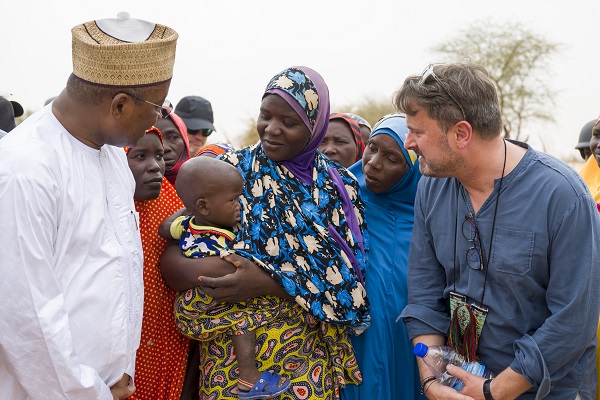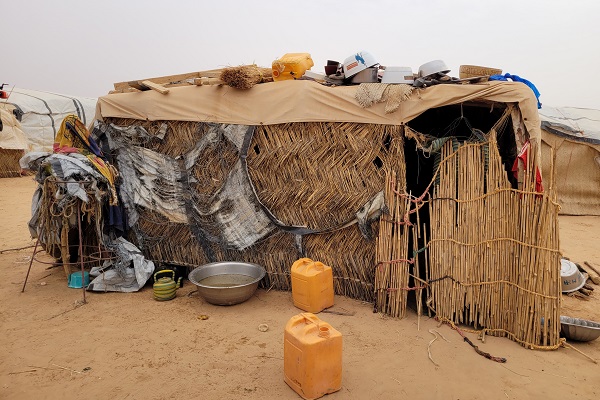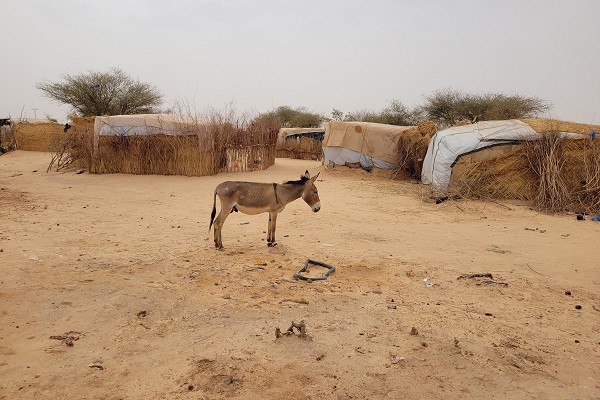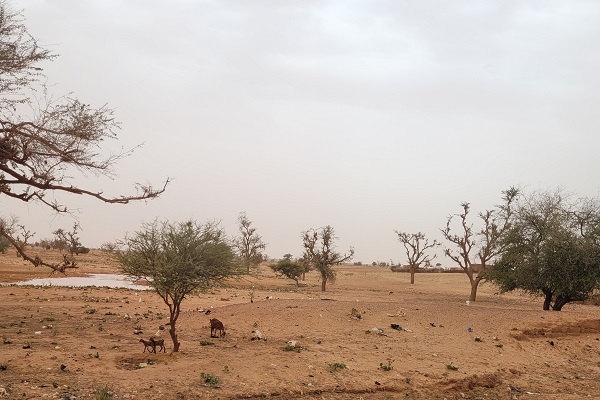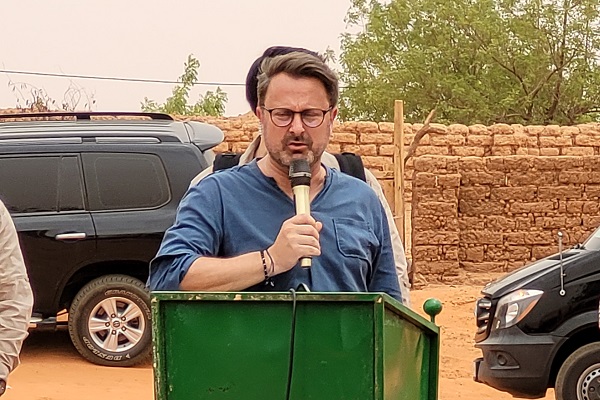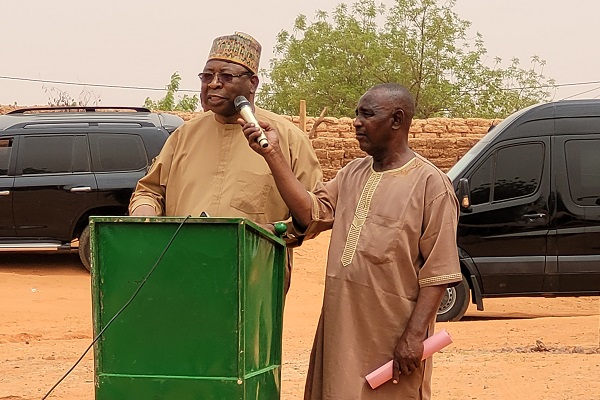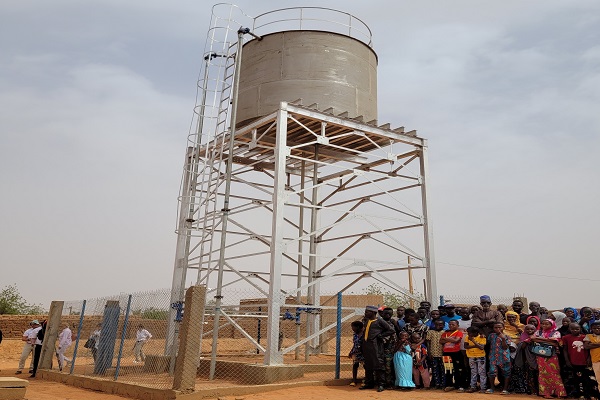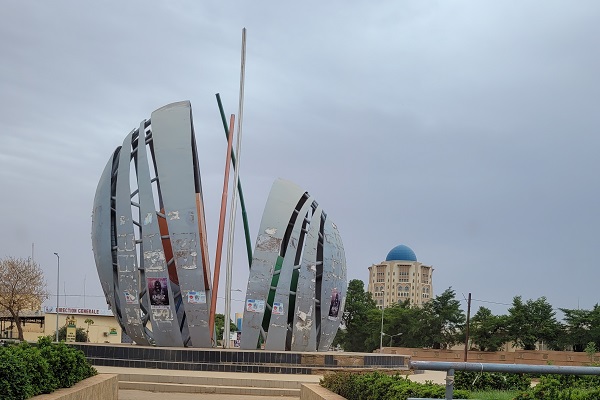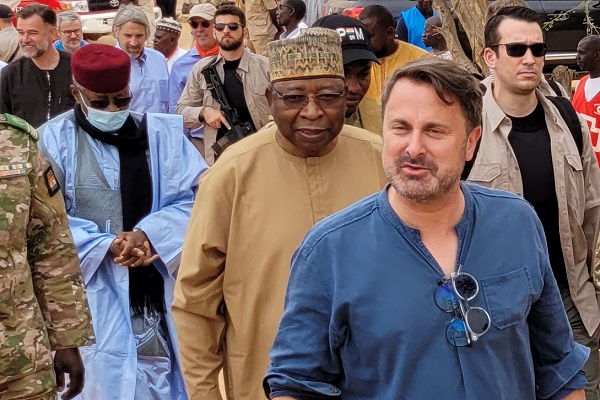 Niger's Prime Minister Ouhoumoudou Mahamadou and Luxembourg's Prime Minister Xavier Bettel in Ouallam IDP camp;
Credit: Jazmin Campbell
Niger's Prime Minister Ouhoumoudou Mahamadou and Luxembourg's Prime Minister Xavier Bettel in Ouallam IDP camp;
Credit: Jazmin Campbell
On Monday 6 June 2022, the official Luxembourg delegation, comprised of government officials, representatives of the private sector and members of the press (including Chronicle.lu), continued their foreign mission to Niger with visits to a centre for internally displaced persons (IDPs) in Ouallam and a drinking water distribution system in Simiri – two examples of Nigerien projects supported by the Grand Duchy to date.
These visits allowed the delegation to witness first hand the results of Luxembourg’s development cooperation policy and humanitarian action in Niger – support which now spans more than three decades.
For background and a report of Day One of this official visit to Niger, see: https://chronicle.lu/category/abroad/41251-niger-visit-day-1-luxembourg-pm-highlights-need-for-development-defence-diplomacy-in-sahel
Ouallam IDP camp
Early on Monday morning, Luxembourg’s Prime Minister Xavier Bettel and the Minister for Development Cooperation and Humanitarian Affairs, Franz Fayot, accompanied by Niger's Prime Minister Ouhoumoudou Mahamadou, as well as members of the Luxembourg press, visited a centre for IDPs in Ouallam, a town located approximately 90 km north of Niamey in southwestern Niger. The Oualllam camp, set up and supported by the Humanitarian Aid of the Luxembourg Red Cross, the Niger Red Cross and the Danish Red Cross, hosts a total of 1,950 households, each with five to six displaced people, returnees or refugees.
As Prosper Zombre, Chief of Mission for the Luxembourg Red Cross in Niger, explained, most of the people living in the village have been internally displaced after fleeing war and armed conflicts within Niger itself. The Red Cross provides these individuals and families with shelter, as well as latrines and hygiene kits. There are newly displaced people arriving daily as conflict in the Sahel region continues and extends further. Mr Zombre noted that the total capacity of the camp is dependent on the amount of financing available. He recognised that Luxembourg’s pluriannual financing, aimed at supporting about 8,000 households, had been a significant help, although more financial aid was needed to support more people. "The demand is bigger than the offer", he lamented, adding that new arrivals are accepted according to criteria of vulnerability.
Dr Rémi Fabbri, Director of the Humanitarian Aid of the Luxembourg Red Cross, explained that there is a strong focus on using local and sustainable materials to build the shelters in the village. In theory, people will stay in the camp for six months, although it is often longer than this (sometimes up to five years). As Dr Fabbri confirmed, the village operates according to the competences of the different Red Cross branches (Niger, Luxembourg and Denmark) depending on the different needs that emerge. They are supported by the International Committee of the Red Cross (ICRC) and the International Federation of Red Cross (IFRC).
In his welcome speech, addressed to the Luxembourg delegation, Ali Bandiaré, President of the Niger Red Cross, thanked Luxembourg for its "solidarity and fraternity" with the Red Cross. He also praised the "remarkable work of volunteers on the frontline" who support victims of conflict and climate insecurity daily.
Likewise, Nigerien Prime Minister Ouhoumoudou Mahamadou thanked Luxembourg and all the humanitarian actors involved for their solidarity. He explained that Niger's migration policy centred around two axes, namely security and solidarity, and assured that his government was doing all it could to tackle the security situation in the region.
For his part, Luxembourg’s Prime Minister Xavier Bettel stressed the importance of the "choice and pragmatism" taken by Niger’s authorities in their cooperation with the Red Cross. Addressing the crowd of displaced people living in the village, he stated: "Every person behind me has a story". He also stressed that climate insecurity and famine can both provoke migration, recalling that 80% of Africans are displaced on their own continent. Mr Bettel went on to reiterate the importance of the 3D approach, encompassing three key ingredients: diplomacy, development and defence.
After receiving a gift from the Red Cross, Luxembourg’s Prime Minister spent some time listening to the stories of people living in the camp. The Luxembourg delegation then went on a guided visit of the village.
Background
According to the United Nations High Commissioner for Refugees (UNHCR), there are currently more than 580,000 forcibly displaced people in Niger. In the first months of 2022, Niger has witnessed a significant influx of new refugees coming from Nigeria, Mali and Burkina Faso, as a result of armed group attacks.
In November 2017, Niger was the first country in which the UNHCR established an Emergency Evacuation Transit Mechanism (ETM) for the evacuation of vulnerable refugees from detention in Libya. Luxembourg has received 49 people in this framework.
Simiri water tower
Later on Monday morning, the Luxembourg delegation visited a drinking water distribution system in Simiri, the chief village in the Ouallam Department of the Tillabéri Region in southwestern Niger. Niger’s Ministry of Hydraulics and Sanitation Works implemented the project through the common financing mechanism, with the technical support of Lux-Development SA (LuxDev), Luxembourg's aid and development agency. Works began in December 2021 and lasted just over one month. The project cost a total of 83,221,460 Central African CFA francs (approximately €126,979), including tax.
Recently, as part of the project, solar panels were installed as a source of energy, as was a more powerful water pump aimed at increasing production and affordable access to drinking water in the municipality. Besides drinking water, the pump provides water for a wide range of purposes, including pastoral water for animals.
During his welcome address, Niger's Prime Minister thanked the Luxembourg Government for the realisation of this important project. Meanwhile, Luxembourg’s Prime Minister Xavier Bettel emphasised the importance of access to water, noting that "water is life". He continued: "Water is more precious than gold and diamonds".
These visits outlined the strategic objectives of Luxembourg’s development cooperation programme interventions in Niger, namely the operationalisation of the so-called "Humanitarian-Development-Peace Nexus".
On Monday afternoon, the Luxembourg delegation departed Diori Hamani International Airport in Niamey and set off for Kigali in Rwanda for the second part of this foreign mission – further details to follow.

